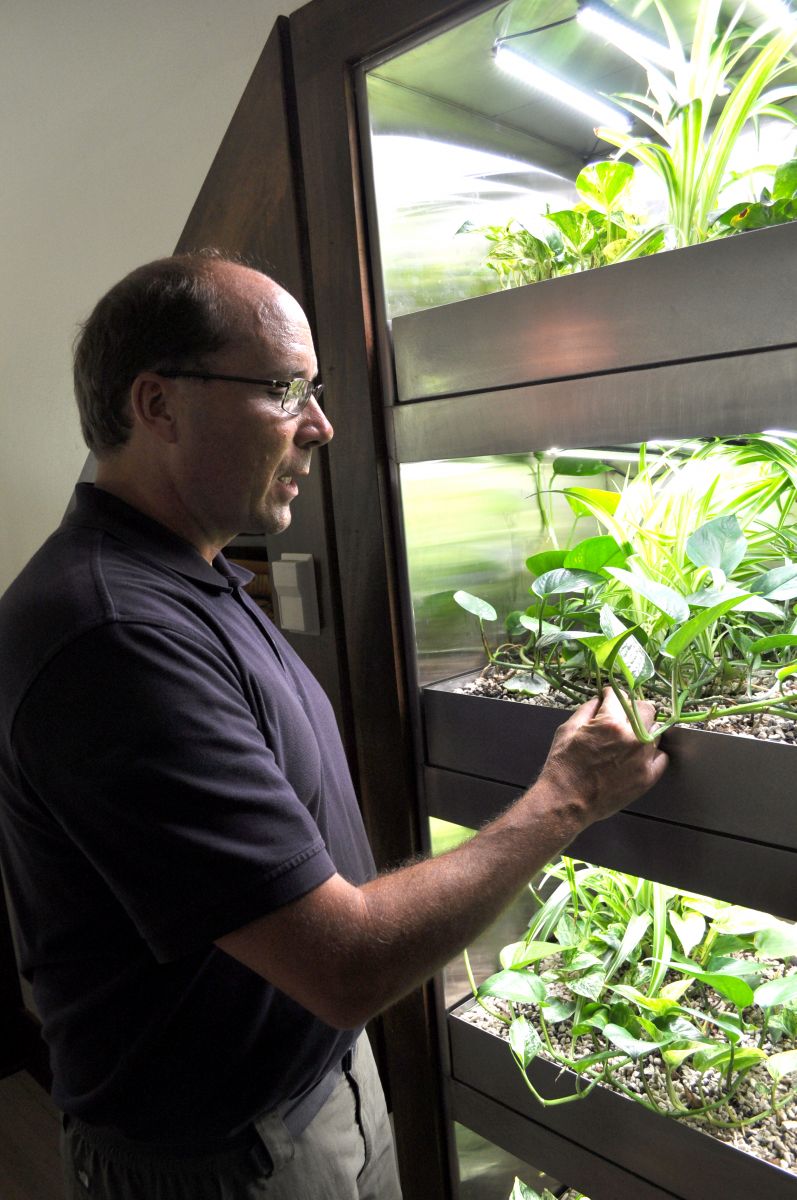
Bill Hutzel, professor of mechanical engineering technology, has been working on the Biowall project since he was the advisor to the 2011 Purdue Solar Decathlon team. The project has matured from student project in the team’s IN_Home design to a product ready for commercialization.
The Biowall is a plant-based filter that uses the natural ability of plants to remove contaminants from indoor air via the heating and air conditioning system. For three years, Hutzel has conducted air quality tests with the Biowall in his Applied Energy Laboratory. For the past year, the latest version has been installed in the ReNEWW House near campus to test how it operates in a residential setting.
“The Biowall has become increasingly automated in terms of airflow, lighting and water,” Hutzel said. “We have a much better handle on how to maintain healthy and thriving plants, and we have a better handle on the air-cleaning characteristics of a Biowall.”
The Biowall made quite a splash when it was first introduced in Purdue’s student-designed entry for the 2011 U.S. Department of Energy Solar Decathlon. As it moves to possible commercialization, its benefits are becoming better understood. The plants in the Biowall are a great way to minimize volatile organic compounds in a house without introducing outdoor air. Less air ventilation could lead to fewer energy costs for a homeowner as well.
The Biowall research is funded by ASHRAE (American Society of Heating, Refrigerating and Air-Conditioning Engineers) and the U.S. Environmental Protection Agency.
Additional information:
